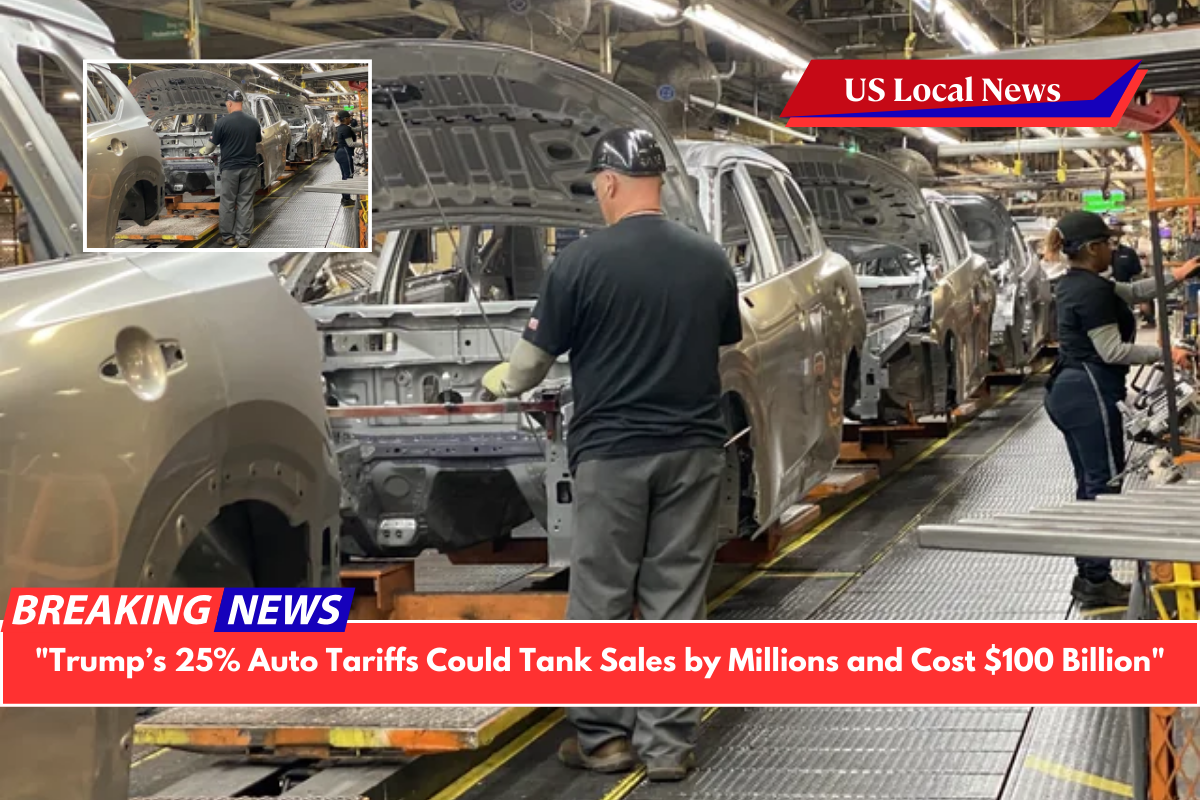The 25% tariffs on imported vehicles imposed by President Donald Trump in April are expected to have significant global repercussions on the automotive industry.
Despite a pullback on some other country-based levies, the tariffs are anticipated to cause a drop in vehicle sales, higher prices for both new and used vehicles, and a cost increase of over $100 billion for the industry.
Industry experts warn that this policy shift will have long-lasting effects on the way vehicles are built and sold around the world.
Tariffs to Drive Up Costs and Decrease Vehicle Sales
According to research from Wall Street and automotive analysts, the cost of production for both U.S. and foreign manufacturers is expected to soar.
The Boston Consulting Group (BCG) predicts that the tariffs will add between $110 billion to $160 billion to the annual costs of the automotive industry, potentially affecting 20% of U.S. new vehicle market revenues.
Similarly, the Center for Automotive Research, based in Michigan, estimates that U.S. automakers alone will face a $107.7 billion increase in costs, with Detroit’s Big Three — General Motors, Ford Motor, and Stellantis (Chrysler’s parent company) — facing a combined $41.9 billion burden.
As these costs rise, the increased prices are expected to be passed on to consumers, which could lead to a reduction in vehicle sales, particularly as consumer demand continues to soften due to higher prices.
Price Increases and Reduced Sales
Experts estimate that the tariffs will push new vehicle prices up by $2,000 to $4,000 within the next six to twelve months. Goldman Sachs analyst Mark Delaney notes that these price hikes will make it harder for the automotive industry to fully absorb the tariff-related cost increases.
“The tariffs as proposed will raise the cost of both importing and manufacturing vehicles in the U.S. by at least a low to mid single-digit thousand-dollar level on average,” Delaney said, further acknowledging that these increases may dampen consumer spending power.
This price increase will particularly affect imported vehicles. According to Cox Automotive, the 25% tariff on non-U.S. assembled vehicles could add as much as $6,000 to the cost of those cars. Vehicles that are assembled in the U.S. will also see price hikes of $3,600 due to the additional 25% tariffs on automotive parts, which are set to go into effect by May 3.
Impact on Vehicle Supply and Consumer Affordability
The rise in prices isn’t just affecting new cars. With the increase in production costs, used car prices are also expected to rise. Many automakers are facing tight supply chains, which will make it harder to keep prices competitive.
This could exacerbate the already significant problem of vehicle affordability in the U.S., where new cars now cost an average of nearly $50,000.
Additionally, the high auto loan rates, which are nearing their highest levels in decades — over 9.64% for new vehicles and nearly 15% for used vehicles — will make it even more difficult for many consumers to afford a new or used car.
Cox Automotive Chief Economist Jonathan Smoke predicts that price increases will accelerate as tariffs are passed through the supply chain, with new and used vehicles becoming even less affordable for the average consumer.
Broader Economic Effects
The tariffs are expected to reduce vehicle sales by as much as 2 million units annually in the U.S. and Canada, according to Telemetry, an auto advisory firm. This drop in vehicle sales will not only affect the automotive industry but will also have a ripple effect on the broader economy.
As fewer vehicles are sold, manufacturers will feel the impact, and workers in the automotive supply chain could also face job cuts or reduced hours.
The automotive industry’s adjustment to these tariffs will require fundamental changes in how and where vehicles are produced.
As Felix Stellmaszek, global lead for automotive and mobility at Boston Consulting Group, points out, “This may well be the most consequential year for the auto industry in history — not just because of immediate cost pressures, but because it’s forcing fundamental change in how and where the industry builds.”
What Automakers Are Doing to Respond
In response to the tariffs, many automakers are trying to absorb some of the increased costs in various ways. For example, Ford and Stellantis have announced temporary deals for employee pricing, which could help offset some of the higher vehicle prices for consumers.
Hyundai has also promised not to raise prices for at least the next two months in an attempt to ease customer concerns.
However, these efforts may not be enough to mitigate the long-term effects of the tariffs, as many manufacturers face difficult decisions on whether to pass costs onto consumers or absorb them internally.











